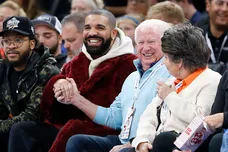Amazon's facial recognition technology, named Rekognition, misidentified almost 15% of Boston professional athletes as criminals in a study conducted by the Massachusetts chapter of the American Civil Liberties Union (ACLU). The ACLU was interested in further investigating the effectiveness of Rekognition after earlier reports revealed its faultiness. Earlier this year, the ACLU found that it also mistook one in five California lawmakers for criminals.
On October 21st, the Massachusetts ACLU chapter shared the results of its study. It compared headshots of 188 athletes from New England professional sports teams - from the Boston Bruins, the Boston Celtics, the New England Patriots, and the Boston Red Sox - to a database of 20,000 mugshots. The athletes were from the Boston Bruins, the Boston Celtics, the New England Patriots, and the Boston Red Sox. In total, 27 out of 188 athletes were falsely matched to the mugshots, including Red Sox pitcher Chris Sale, Patriots running back James White, Patriots wide receiver Phillip Dorsett, and Patriots defensive back Duron Harmon.
With this study, the ACLU hoped to communicate that Rekognition should not be relied on by the government without protections. “The results of this scan add to the mounting evidence that unregulated face surveillance technology in the hands of government agencies is a serious threat to individual rights, due process, and democratic freedoms,” Kade Crockford, director of the Technology for Liberty Program at the ACLU of Massachusetts, said in a statement. “Face surveillance is dangerous when it doesn’t work, and when it does.”
In a statement to 7 News Boston, Amazon Web Services said the ACLU chapter was “misrepresenting” its facial recognition technology. “As we’ve said many times in the past, when used with the recommended 99 percent confidence threshold and as one part of a human-driven decision, facial recognition technology can be used for a long list of beneficial purposes, from assisting in the identification of criminals to helping find missing children to inhibiting human trafficking. We continue to advocate for federal legislation of facial recognition technology to ensure responsible use.”







